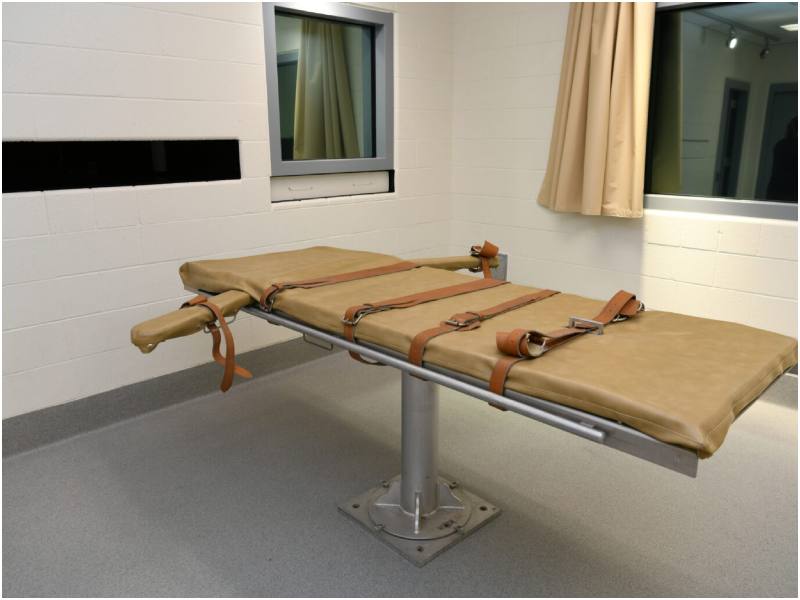Utah officials announced on Saturday a shift from an experimental three-drug lethal injection protocol to a more established single-drug method for the execution of death row inmate Taberon Dave Honie.
This decision, reported by The Salt Lake Tribune, follows Honie’s legal challenge against the use of the experimental drug combination.
Honie, sentenced to death in 1999 for the murder of Claudia Benn, has persistently contested his conviction and sentencing.
On June 10, 2024, the Fifth Judicial District Court of Utah issued an execution warrant for Honie, scheduling his execution for August 8, 2024.
Subsequently, on July 11, 2024, Honie filed a lawsuit in the Third Judicial District Court, opposing the administration of the experimental three-drug lethal injection.
The initial protocol included Ketamine, Fentanyl, and Potassium Chloride. Honie argued that Utah would be the first state to use Ketamine in a lethal injection, citing its potential to induce severe psychological distress.
He also contended that Fentanyl might not reliably induce unconsciousness, potentially causing extreme respiratory distress. Regarding Potassium Chloride, Honie claimed it could cause excruciating pain if the other drugs failed to render him unconscious, describing it as feeling like being burned alive and experiencing agonizing cardiac arrest.
Honie’s lawsuit asserted that this three-drug combination posed “an unnecessary and substantial risk of serious harm,” violating the Utah Constitution’s prohibition against “unnecessary rigor and cruel and unusual punishment” (Article 1, Section 9).
He requested the court to prevent his execution by any lethal injection method until a new, constitutionally acceptable protocol was devised.
He proposed using pentobarbital, a method authorized in ten states, as a viable and less harmful alternative.
In response, Utah officials decided to replace the experimental three-drug protocol with a pentobarbital injection.
On Friday, they requested the Third Judicial District Court to dismiss Honie’s lawsuit, arguing that they had addressed his concerns by altering the execution method.
They also contended that further delays would not serve the public interest, expressing the need for finality after 25 years of legal proceedings.
The state officials underscored the significant interest of both the state and the victim’s family in concluding the litigation and carrying out the legal sentence.
They argued that any injunction further delaying Honie’s execution would be contrary to public interest.
For further details, legal professionals and interested parties can refer to the official court filings and statements issued by Utah state officials.

